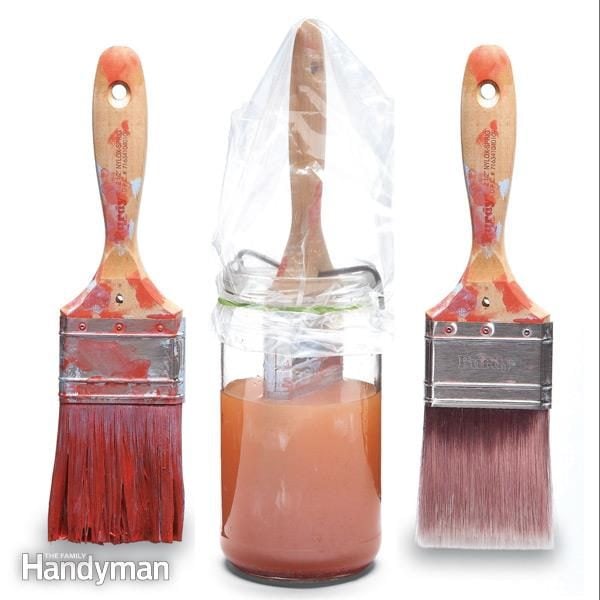Brush End Types. Chisel Trim Brush - slanted bristles produce a good, straight line for trimming in corners and edges. Square Trim Brush - the ends of the bristles are cut square and used primarily for applying paint over flat areas. Angled Brush - bristles are cut to make it easier to apply paint to window trim. A paint brush should be cleaned in an agent that will remove all the paint from it. A nontoxic cleaning agent known for removing paint from brushes is mineral oil. Wipe a little onto a piece of cloth, allow it to soak into the brush. Makeup brushes will take a bit more delicate touch when cleaning. Canon utility download for mac.
Haven't any of you had any professional training at all?

Softening Paint Brushes

Softening Hardened Paint Brush

I don't want to steal your thunder Kelly, but this is not Best Practice.
Don't ever put paint thinner into plastic. It will melt most kinds. Why risk a mistake? Old glass salsa jars exist for brush cleaning. label one, put some glass marbles like the flower arranging ones into the bottom to work the brush against. (Plain, not coated with shiny stuff. It'll dissolve) Trying to clean oil based paints out of brushes by just stirring them around doesn't work. If you're desperate a crumpled piece of window screen will work too but it's hard on bristles so this is not a default. Paint thinner is very flammable and an ugly toxin so you want to keep it stingy and the stuff needs to go to Hazardous Waste Disposal. Wipe those brushes really well!
If you're doing fine arts painting go buy a proper brush cleaning pot. A big size one would be good for pro house painters. Solvent sits in it for weeks and it has a sieve to work the bristles over. Paint solids drop below it. The top keeps fumes in and evaporation almost nill over weeks. Minimal exposure, clean brushes. Download trial version of microsoft office for mac 2011. Now wash them! I wash up to thirty brushes a day in the studio; it's just doing the dishes.
Do NOT use a surfactant/ detergent 'soap'. Use a real soap, a chemically designated soap, with oil or fat in it. You can put it on a cellulose sponge and work the brushes across it to work up a lather, or just work them against your palm. If you use bar soap swipe the brushes across it. The soap cuts the oil, and the fat base conditions the bristles.If you wiped out the paint and rinsed in thinner properly there's very little to wash out. More like a post gym shower then wrestling gunk. You don't want paint in a sink drain or on the back patio. Rinse well. If you do this correctly you'll get to wear brushes out instead of throwing them away. And bristles are chosen for this exposure so they'll get better. It's just like washing your hair. Squeeze out the water and shape them, air dry.
This works for synthetic brushes too. Do not leave soap in the bristles as it will contaminate your paint next time and make a bad paint film. As for exotic paints like epoxy? Yes, use nitrile gloves and a respirator! Outside. But if the stuff is hydrocarbon based a fat soap should work too. Acetone on brushes will kill them fast, so make sure thats a really Best Practice. Again- a soap may work better. Most bristles need the conditioning.
If your brushes start to get that gunky icky feeling, soaking them in that inexpensive liquid oil soap from the grocery store (Also best for regular washing after painting) is like a spa treatment. Leave them in for two or three days. It's magic! Paint in the ferules is a ruined brush, but as regular maintenance this is amazing. I have ten year old mongoose thats still sweet. I also paint a lot.
Do not use soap on watercolor brushes. Just rinse.
This is the method professional painters use; It keeps solvent use to an absolute minimum. Reusing a cup or 12 ounces of thinner instead of blowing through gallons of it reduces exposure and that stuff has lead in it. Among other scary things. Don't use it on skin either. Paint'll fall of in 48 hours if soap or olive oil doesn't get rid of it.
Even if you use a thinner only system like the guys who paint cars using industrial paints, a cleaning pot will use less thinner and reduce your chemical exposure. They can be used in series. You can eyeball them at the big online art supply stores, and I shop at industrial supply so don't think they don't interchange. ;-D I'll try to post instructions for the homemade version.
